I love Dark Souls 3. I very, very much like Elden Ring. Despite sharing a genre, they couldn't be more different in terms of gameplay and approach. Dark Souls is a meticulously crafted, mostly linear adventure with strictly designed levels that rewards the cautious explorer. Elden Ring is like Zelda hopped up on steroids. It's an expansive open world that encourages exploration, trial and error, and even recklessness to a point.
In both, I love that developer FromSoftware, (who pioneered the genre), gives me the tools and the time to craft an adventure for myself. I can spend as long or as little as I want in perfecting my character from the skills to the weaponry. When something fails, I can go off and take my time to figure out what might work the next time.
In Nightreign, the spin-off multiplayer title released in May of this year, players don't have that luxury. Instead, the world goes on when you die, and even a single stumble can cost you an entire run in this unforgiving gauntlet.
It forces players into experiencing this world in a brand new way, and it took me every minute of the past two months to really understand and appreciate on its own terms.
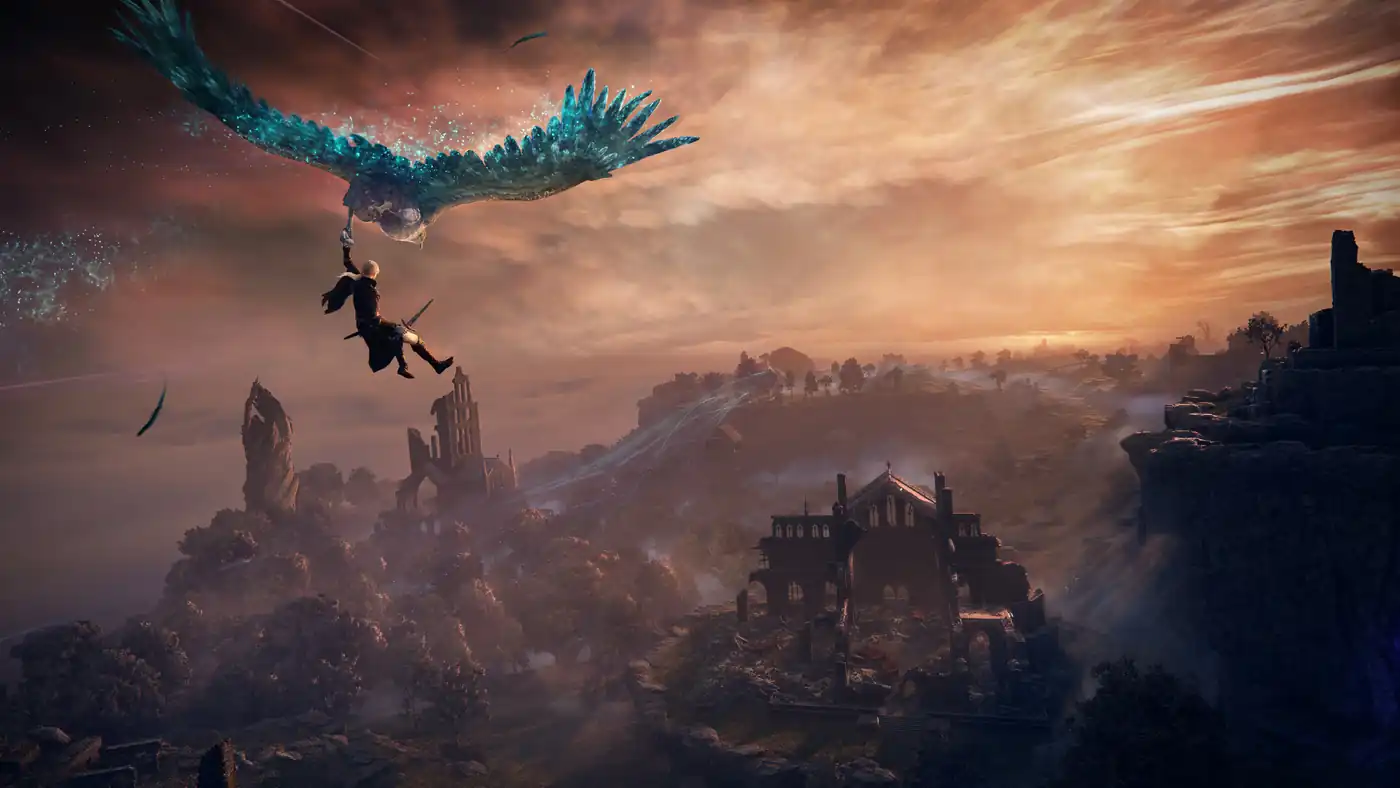
Gameplay is hectic and fun, but often ruthlessly challenging
Nightreign flips the script from the meticulous and player-driven approach seen in Elden Ring into a roguelike one, where a trio of adventurers race against an increasingly cramped playing field.
In the beginning of each run, three adventurers (chosen from a set number of classes) drop into a procedurally generated version of Limgrave, where the playing field is randomized for every go. From there, they have to collect gear, experience points, and defeat minor sub-bosses as they head for the final encounter at the end of the map. In the end, each run ends in a barren field, where the hugely difficult final boss awaits.
It's a mixture between a battle royale, an extraction game, and a co-op roguelike. In a way, it's everything and nothing like you'd expect, as the enemies can turn from random grunts into gargantuan dragons at the drop of a hat.
In June, Nightreign grew with a challenge mode that amps up the difficulty further by introducing even harder versions of three major bosses. Now, instead of two distinct battle phases, the bosses feature three. At the time of writing, Nightreign has expanded this increased difficulty to all bosses in the game.
As someone who struggles with even the default difficulty in the game, I can't say this increased hostility is at all enticing. But it's there, and it shows that Nighreign will only continue to grow as time goes on.
The major downfall to Nightreign's new mechanics is how dated some other elements feel. There is no voice chat, and no means to communicate with other players beyond a simple tagging system that pinpoints a marker on the map. However, opening the map is a pain, as the game itself doesn't pause when you're doing this. Which means you now have a huge UI element blocking your line of sight, and every enemy around can get a few vital hits in before you can do anything about it.
Similarly, the party system is mostly unchanged from Elden Ring, which was already dated five years ago. You can always chat with friends through a third party software, but if you're like me and play alone, your options are a solo run (immensely difficult), or playing with random adventurers online. This mostly proves frustrating, as players will often leave the game early when they die, or will solo just for the hell of it.
It's very difficult to communicate with others on any plans, let alone trying to gauge what they want out of their own run in turn.
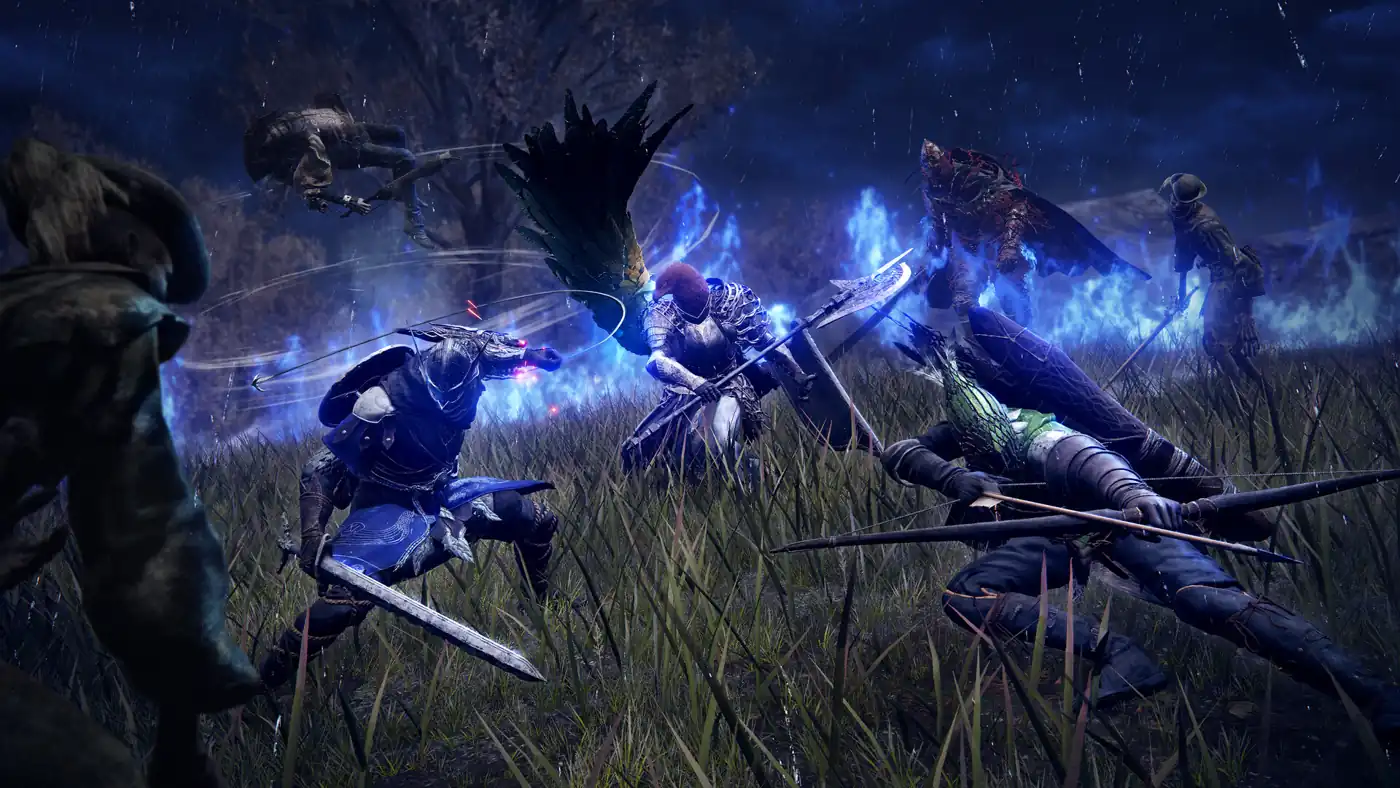
Sometimes, the stars align and teamwork goes off without a hitch. In those rare moments, I can see exactly the vision for Nightreign as it should be. Giant monsters fall easily, and there's a shared element of Capcom's brilliant Monster Hunter series as you and your partners use different character classes to combine forces in unexpected ways.
Speaking of which, the new sorcerer mechanics are brilliant, and a superlative way to keep the action moving in a game that has no time for personal adjustments. Magic users now have their spells tied to staffs and relics, but they can also suck the energy out of the air, which grants them mana and an elemental orb. Collect three orbs of different elements, and you can cast a combined spell that is either devastating to the enemy, or helpful to allies.
It's a fun mini-game aspect to the combat, which rewards those willing to experiment and remember combinations in the heat of battle. If you get a friend to coordinate with you, you can even power through harder encounters by feeding each other different elements for impossibly powerful moves.
But this, once again, demands that you could communicate with the other players on the team, and if you're playing with randos, that's simply not possible. It's a baffling choice, one that consistently caused me grief during my time with the game.
And yet, despite this, and despite numerous annoyances with runs failing due to a single mistake twenty minutes into the gameplay, I found myself returning to Nightreign every day during the last two months. There's something about the gameplay loop that is deeply captivating. It's not perfect, but it is a bold vision of what this genre could look like in the future, and that's already enticing enough.
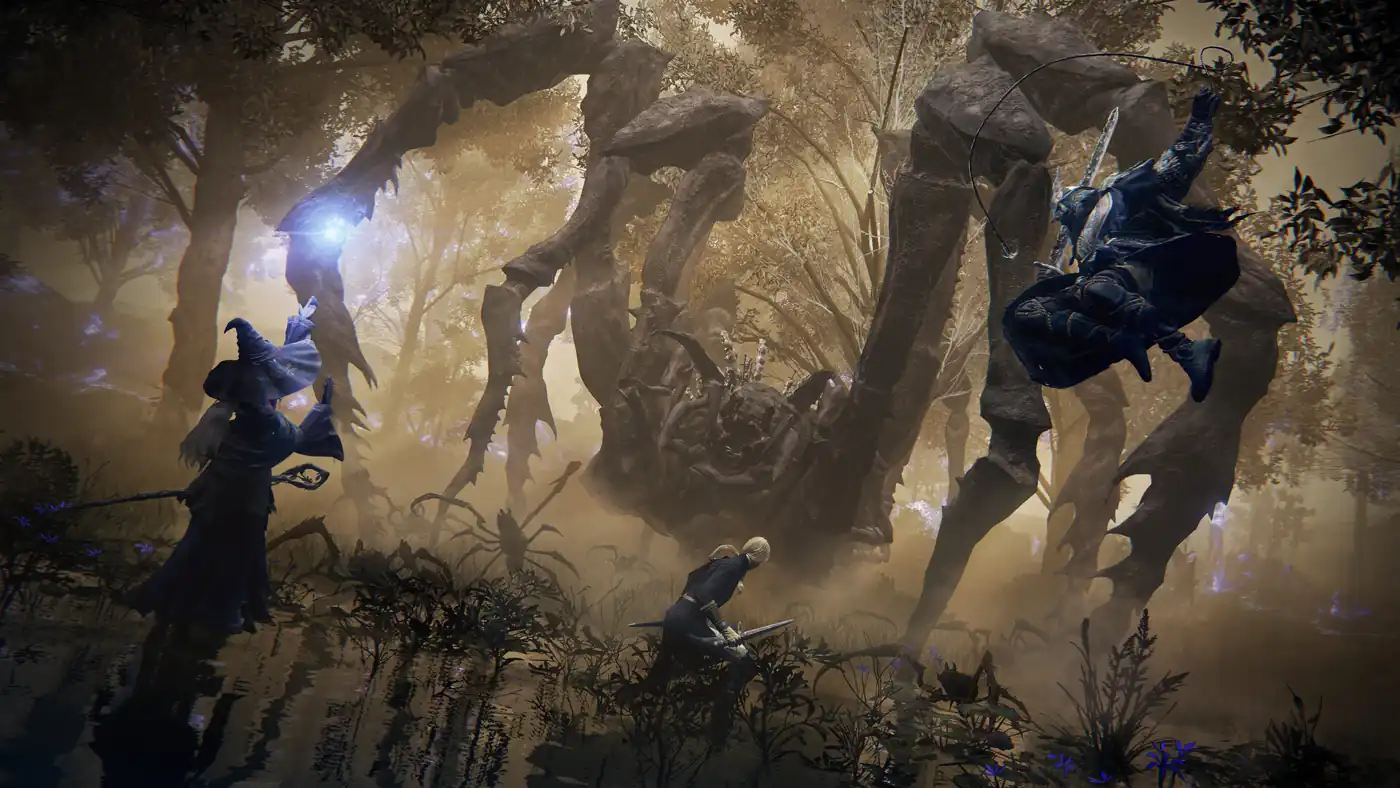
Accessibility
As with other titles made by FromSoftware, Nightreign doesn't boast a wealth of accessibility options. Some, like the ability to turn off triggering visual effects and changing font sizes, are always welcome. But for a game as demanding and fast paced as this, I wish FromSoftware would finally move out of their comfort zone and try to accommodate players with disabilities. Right now, it's hard to recommend for everyone, even if the gameplay itself is fun.
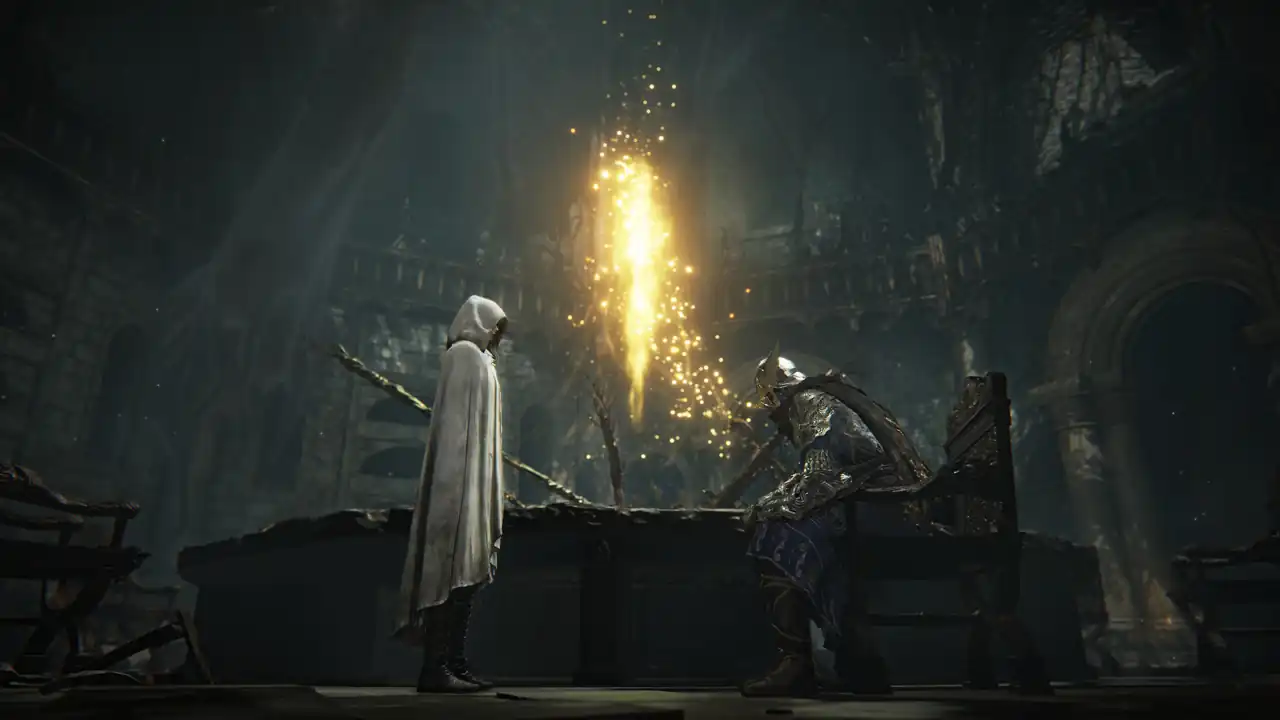
Technical performance after two months is still iffy, though vastly improved
When I first got my hands on Nightreign at launch, the game was in rough shape. While the audiovisual presentation was top notch, other technical elements barely functioned. On a medium spec PC, I could barely run the game without constant stutters, frame rate fluctuations, and even hard crashes.
After two months, most of these have been smoothed over, and Nightreign finally functions as initially promised. On occasion, I'll still notice a stutter here and there, but it's nowhere near as prevalent as before.
For reference, my CPU is already quite old (i7-9700k), I've got 32gb of DDR4 ram, and my GPU is an RTX 3080 with 10GP of VRAM. It's not terrible, and for 1440p gaming it's still a perfectly fine setup, but I know not to run games at the highest settings.
Even so, at the lowest settings possible, for the first two months Nightreign made my system wheeze and chug. While I never got a complete answer on why this was the case, suspicious fingers were pointed at the CPU utilization as a possible culprit. I tried every imaginable fix found online, to no avail.
After the third patch, issued mid-June, the performance stabilized and only got better from there.
It's an important aspect when reviewing live-service games such as this. What you initially get won't be the final product, and even a few months make a huge difference. Not ideal, but the sad reality of things at the present.
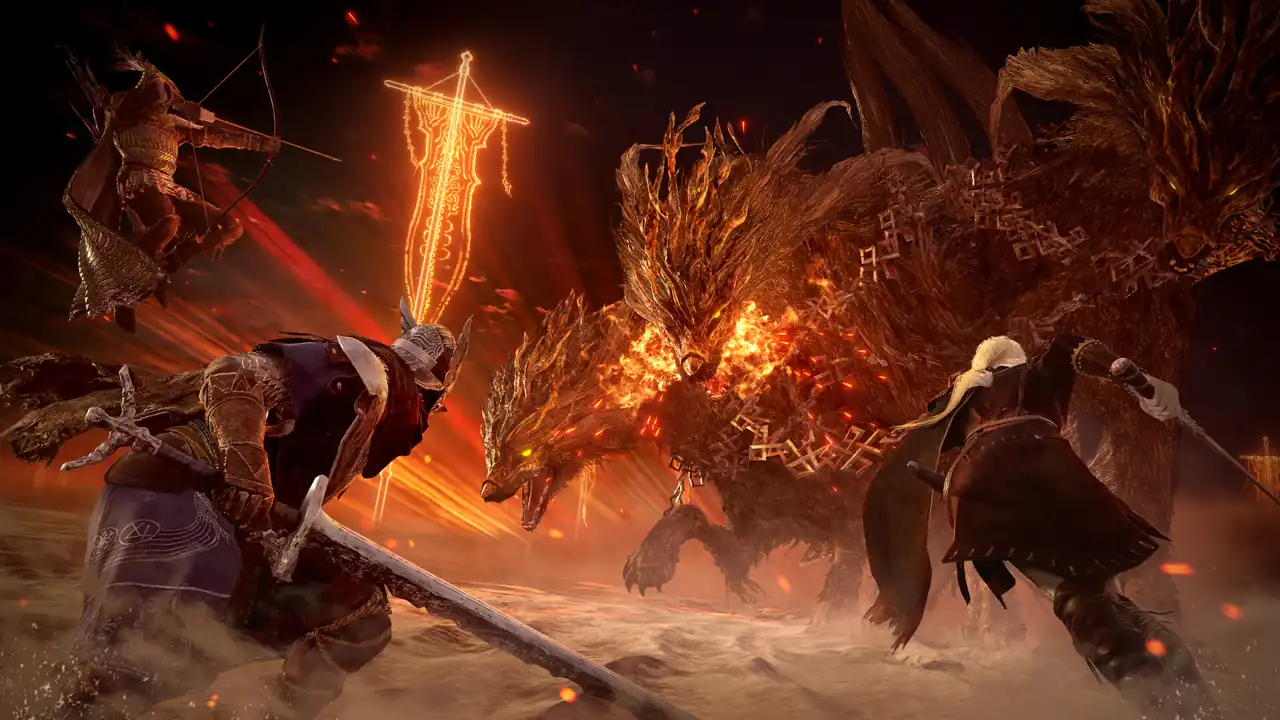
Who's It For?
Nightreign is an odd game to recommend because it runs so contradictory to previous titles in the FromSoftware template. It's not quite an Elden Ring experience, not quite a Dark Souls one, and certainly not an altogether battle royale, either. Instead, it's a bit of everything, with a potential to be much more.
But, as always, I can only review what something is, not what it can be. For now, Elden Ring Nightreign is a frustrating, but also revelatory experience. It demands a lot, especially in the way we approach this genre, and it can be infuriatingly obtuse in the way it presents itself.
And yet, the moment it clicks, it really sinks its teeth in you and turns into an addiction you want to return to over and over again. The gameplay loop is a compelling mix of exploration and optimization, which eventually begins to feel like second nature. By the time you know what you're doing, the sprint turns into a gleefully demented makeover montage, where heroes are crafted from disparate elements into unstoppable killing machines.
It's fun, unexpected, and challenging. Everything you'd want from a title like this. Even if it doesn't look and feel exactly like we initially imagined.








